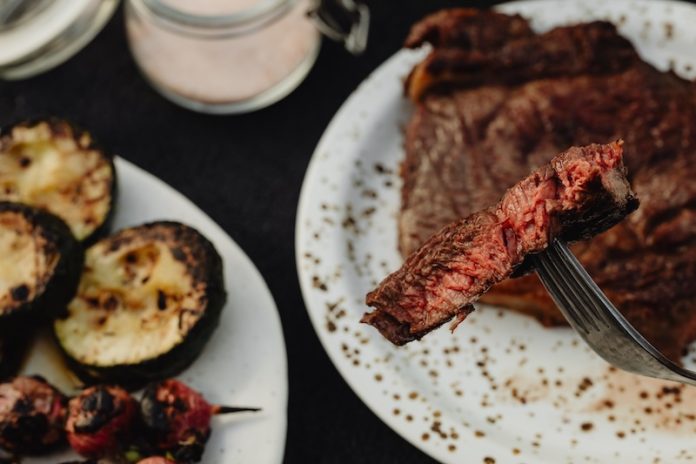
Recent research published in the Journal of Nutrition has shed new light on the debate over animal versus plant-based proteins and their effectiveness in stimulating muscle growth, particularly in older adults.
This study stands out as one of the first randomized controlled trials to compare the anabolic properties of whole protein foods consumed as part of mixed meals.
Titled “Higher muscle protein synthesis rates following ingestion of an omnivorous meal compared with an isocaloric and isonitrogenous vegan meal in healthy, older adults,” the study reveals a significant difference in muscle protein synthesis rates between meals with different protein sources.
The researchers found that an omnivorous meal with lean beef resulted in a 47% higher muscle protein synthesis rate compared to a whole food vegan meal, despite both meals having identical calorie and total protein content.
This research is crucial because it moves beyond studying isolated proteins to understanding the impact of consuming whole protein foods within typical meals.
Luc van Loon, Ph.D., from Maastricht University Medical Center+, and the principal investigator, emphasizes the study’s relevance given the increasing interest in vegetarian and vegan diets and the importance of maintaining muscle mass and strength with aging.
The clinical trials involved 16 healthy older adults aged 65-85 years in Maastricht, the Netherlands.
Participants consumed two different meals on separate test days: one omnivorous meal containing 3.5 ounces of lean ground beef, and one vegan meal with equivalent calories and protein content from plant sources like quinoa, soybeans, chickpeas, and broad beans.
Both meals provided an average of 36 grams of protein, aligning with recommendations for stimulating muscle protein synthesis in older individuals.
Post-meal, researchers measured plasma amino acid profiles and muscle protein synthesis rates using blood and muscle biopsies collected over six hours.
They found not only a higher muscle protein synthesis rate following the beef meal but also a 127% increase in plasma essential amino acid (EAA) concentrations and a 139% higher plasma leucine level, a critical amino acid for muscle building.
Philippe Pinckaers, MSc., the study’s lead author, notes that while the vegan meal didn’t show any selective amino acid deficiencies, the results highlight the importance of the food matrix and amino acid bioavailability in different meal types.
This study is an important step in understanding the impact of dietary choices on muscle health, especially in the context of aging and the global challenge of sarcopenia, the age-related loss of muscle mass and strength.
More research over longer periods is needed, but these findings offer valuable insights into the potential benefits of including animal-based proteins in the diets of older adults for better muscle health.
If you care about health, please read studies that plant-based diets can harm your bone health without these nutrients, and this bone problem may strongly increase COVID-19 death risk.
For more information about wellness, please see recent studies that too much of this vitamin may increase your risk of bone fractures, and results showing this type of exercise may protect your bone health, slow down bone aging.
The research findings can be found in The Journal of Nutrition.
Copyright © 2023 Knowridge Science Report. All rights reserved.



